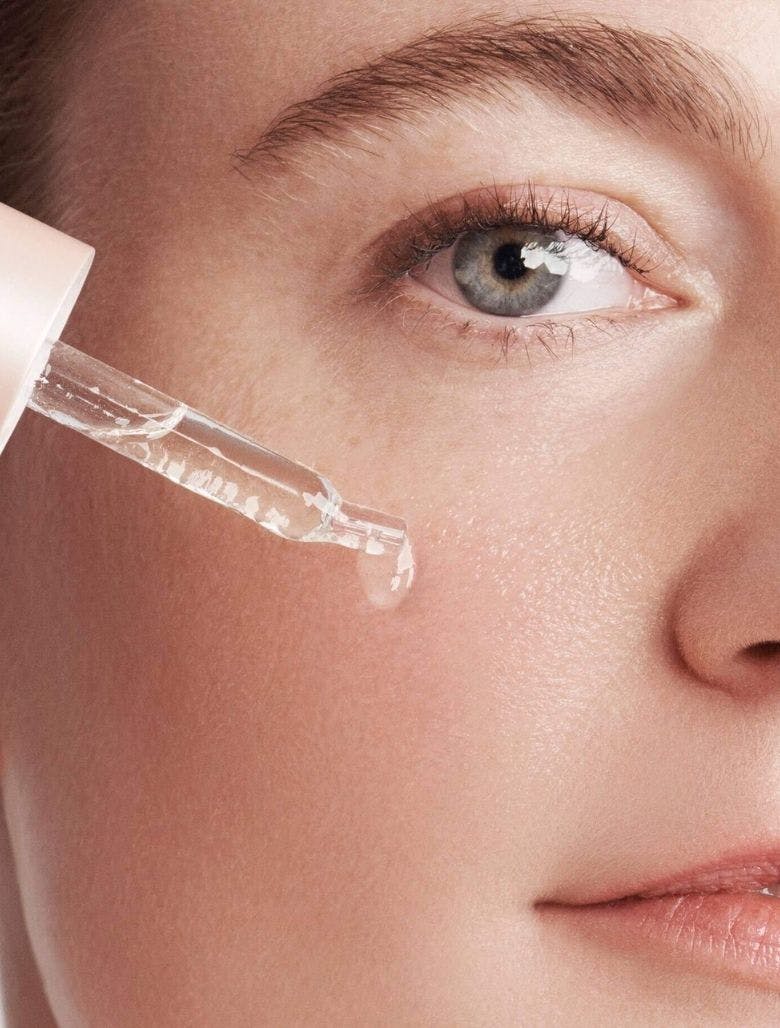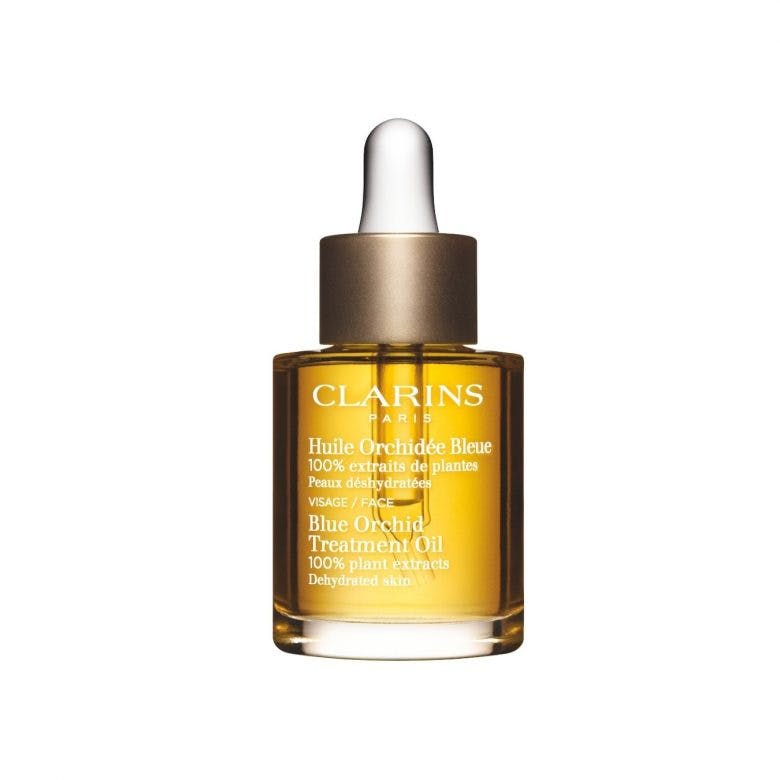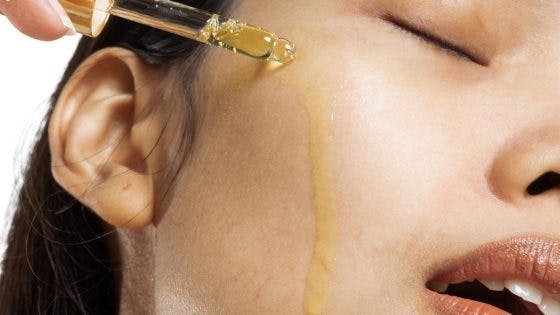The Best Essential Oils for Good Skin
8 minutes read
Good news: essential oils are great for your skin and for your wellbeing. So, if you have been on a quest to alleviate stress and anxiety, these are easy products to include in your beauty routine to create moments of calm.
And rest assured, you are not alone. In the UK alone, The Priory claims that the term ‘stress‘ is searched 22 times every minute.
Scientists are also uncovering what anxiety and stress can do to your skin. Studies conducted by Harvard show that continuous exposure to stressful environments can exacerbate skin conditions, including psoriasis, eczema, acne, and premature skin ageing.
This is where aromatherapy can help – and the use of essential oils for a glowing complexion are going beyond self-care Sunday. Many have found refuge in a two-in-one ritual that lifts the mood and improves skin vitality all at the same time.
The National Association for Holistic Aromatherapy (NAHA) defines aromatherapy as “the therapeutic application or the medicinal use of aromatic substances (essential oils) for holistic healing.”
We consulted Charlotte McHale, Clarins Training Manager, to share her tips and tricks on how to use essential oils on skin, along with highlighting the best essential oils for skin depending on your beauty and skincare needs.

What are essential oils?
Essential oils for skin care are compounds extracted from plants. They are obtained through the distillation of leaves, flowers, fruits and roots and capture the plant’s natural scent and flavour, which explain their pleasant smell. And if you’re wondering why they’re called ‘essential’? It’s because the oil contains the plant’s essence.
Each essential oil has its’ own characteristics and different therapeutic properties. McHale explains:
“There is a huge market for people who only want to put natural products on their skin. The Clarins’ perspective is if we can source it sustainably from nature, then it means you understand where something has come from and you understand how the skin interacts with it in a natural way.”
How to use essential oils for glowing skin
One method to use essential oils is by inhalation – either by rubbing oils into the hands and using breathwork; by heating them gently in a dedicated electronic diffuser, or adding a few drops to a bath or warm water.
A recent study suggests that inhaling essential oils has psychological benefits, including lower stress and anxiety levels and significantly better sleep quality and energy levels.
Inhalation carries sensory information through the olfactory nerve, connecting the nose directly to the limbic system – the part of the brain that regulates emotions. Once this area is stimulated with scents, our sense of emotional wellbeing gets a big boost.
While inhaling essential oils can stimulate your wellbeing, you can also reap benefits with topical application. Sprinkle it into baths, and use it for self-massage for an instant feel-good factor.
Keep in mind, though, when using essential oils in skin care that you must first dilute any pure essential oils with a carrier oil such as olive, jojoba, hazelnut or coconut oil to be safely massaged into the skin – as applying directly to the skin can cause irritation.
Word of caution: People should not ingest essential oils. Doing so may cause organ damage and adverse reactions.
Conveniently – the Clarins ready mixed face and body oils take out the guesswork – so there’s no need for weighing or measuring, and you can apply them all directly onto bare skin.
How to include essential oils into your skincare routine
Many find a sense of calm and comfort in aromatherapy. So, it makes perfect sense to add essential oils into your skincare regime as and where you can.
If you want to use essential oil for skin but are concerned about the side effects and the risks that come with it, McHale recommends the ready-mixed version you can buy now:
“We are aware of the concerns of people when it comes to applying essential oils directly to the skin. The concentration of essential oils in the Clarins Aromatherapy Range is both beneficial and safe. The oils that we use are pregnancy-approved like the rest of our products – and that’s how confident we are that the oils we use are absolutely safe for all skin types no matter how sensitive, and there are no risks using all those formulas unless, of course, you have a particular allergy you are aware of. I would happily recommend it to anybody who wants to incorporate these oils into their routine.”
Clarins’ Essential Oils contain 100% plant extracts, and all of them include hazelnut oil which means they are safe on skin and fast-absorbing.
What are the best essential oils for good skin?
Essential oils can help with pretty much everything, from fighting the signs of ageing, increasing skin elasticity, improving complexion, fighting acne to smoothing and brightening skin appearance. According to scientific evidence, some essential oils can even target more severe skin conditions like eczema and psoriasis. There’s an essential oil to fix all your skincare concerns, so picking the right one is key.
Essential Oils for Dry Skin
Dry skin occurs when the skin lacks moisture and natural oils. It isn’t usually serious, but it can be irritating. It is prevalent during the winter months and can happen as a result of frequent bathing, use of harsh soaps, central heating, ageing, or certain medical conditions.
The following oils may help alleviate dry skin issues:
Orchid extract: is known for its super moisturising and hydrating properties which help retain moisture levels, as well as soothe and smooth the complexion. This is also one of the best essential oils for skin ageing.
Patchouli oil: is best for treating skin conditions such as dermatitis, acne, or dry, cracked skin. This essential oil is also helpful for treating eczema rashes.
Sandalwood oil: contains compounds known for reducing inflammation while promoting moisture in the skin. It is also an antiseptic that can reduce hyperpigmentation and the appearance of scars.
Lavender oil: regulates and balances the skin’s moisture barrier and prevents it from drying out. It has hard-working antifungal properties and reduces inflammation; and can also help keep eczema, psoriasis and rosacea at bay.

McHale recommends Blue Orchid Face Treatment Oil, £40 for those who suffer from dehydrated and/or dull skin. This treatment oil contains orchid and patchouli essential oils, which help revitalise and restore radiance to moisture-depleted skin.
For dry to extra-dry skin, Santal Face Treatment Oil, £40 is a brilliant skin soother. Cardamom enhances microcirculation, and lavender helps to tone, soothe, comfort, and decongest dry, irritated, or stressed faces.
Essential Oils for Oily Skin
Oily skin results from sebaceous (oil) glands producing too much sebum, leading to clogged pores and acne. McHale debunks the myth that people with oily skin should not use oils; she says, “The extracts in the Lotus Treatment Oil, for instance, are very good at mimicking the structure of the sebum.”
So, instead of stripping the skin with something that ‘dries it out’ McHale recommends: “Combat excess oil production so that oil glands will not overreact and overcompensate with the help of Lotus Oil. It does a very good job at calming the oil production down.”
She also adds, “The skin is very clever and very reactive, so if the skin already knows that there is a lot of oil on the surface, it will calm down. You can train the behaviour of your skin for a long-term solution and regulate oil production.”
These are the best essential oils to balance out skin’s oil content:
Clary sage oil: is known as a go-to essential oil for controlling excess sebum. It helps regulate the secretion of sebum to reduce the probability of breakouts, acne and oily skin.
Lotus extract: contains skin-balancing properties, which help balance sebum production. It is also beneficial in preventing clogged pores, acne and blackheads.
Rosemary oil: hydrates the skin, which helps to control oil production. In addition, its extensive astringent and antiseptic properties help tone the skin and prevent acne. It is also beneficial to skin conditions such as eczema.
Geranium oil: is a versatile oil that balances oil production. Its antibacterial and anti-inflammatory properties also help to avoid infections.
Essential Oils for Sensitive Skin
Sensitive skin can sometimes be aggravated by eczema and other skin conditions. Therefore, it’s recommended that you stay away from highly acidic citrus oils, including lemon, orange and bergamot.
McHale suggests using Calm-Essentiel Restoring Treatment Oil, £46, if you have weakened and sensitive skin. It contains essential oil organic camellia, which is best for nourishing the skin, as well as vegetable squalane, which reinforces the skin and protects it. It’s gentle enough to be applied day and night, and can also be applied intensively as a cure for between 10-20 days, for the most reactive skin types.
The recommendation for all skin types is the 2-in-1 oil-emulsion moisturiser, Plant Gold, £50. It is formulated with blue orchid extract and patchouli essential oil, which helps nourish, revitalise and restore skin’s radiance.
Pro Tip: Apply any ready-mixed treatment oil to a damp clean face and neck, morning and/or evening after cleansing and before moisturising.
The beauty of essential oils is in their versatility. You can add a few drops to your heavier moisturisers to give an extra boost of skincare benefits, depending on the issues you want to address. Or, use an oil to aid with facial lymphatic drainage massage to reduce dullness or puffiness.
If you are interested in essential oils specific to your skin concerns, consider talking to a dermatologist or your local Clarins Skincare Specialist.
Sign up for our newsletter
We will keep you in the loop for special offers, exclusive gifts and product news.

